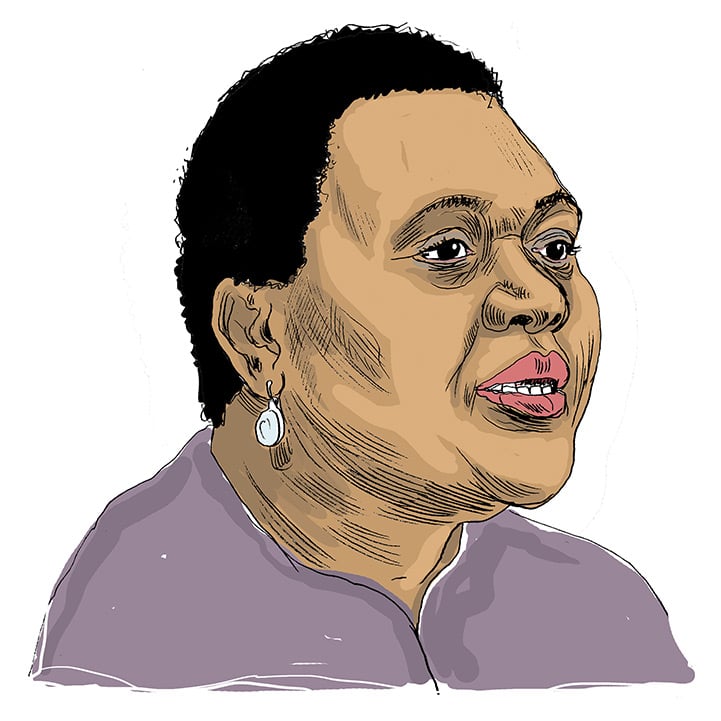Thoko Didiza is no stranger to Cabinet; she has served in four administrations. She served as minister of agriculture and land affairs from 1999 to 2006. This year she came back for round two as the political head responsible for the dysfunctional agriculture and land department, but with the added responsibility of rural development and land reform.
She placed fast-tracking land reform and supporting small-scale farmers high on her agenda.
Agricultural organisations welcomed the appointment of Didiza and the amalgamation of the two ministries into one, citing the minister’s previous experience of dealing with agriculture and land. But the warmth soon chilled; organisations accused Didiza of being slow to deal with her first clear-cut crisis — the outbreak of foot-and-mouth disease, a contagious viral disease that affects cloven‑hoofed animals and has serious economic consequences. In November cases were confirmed in 10 locations in Limpopo. North West, Gauteng, Mpumalanga and the Eastern Cape are also affected. The Red Meat Producers’ Organisation criticised the department’s lack of monitoring of livestock movements after the outbreak.
In December Didiza gazetted the ban on auctions to limit the spread of the disease, but industry experts say it could take up to three years to get South Africa’s disease-free status back, which prevents trade internationally.
Last year, the department of agriculture was identified by the treasury as one of the departments that places a heavy strain on the public wage bill. A pointed note was made about the cost of management. The department has not reduced the R68-million spent on senior management bonuses alone.
To Didiza’s credit, she has remained frugal in the amount of money spent on salaries in her private office, keeping the number of people employed to six and costing the department R2.6-million a year.
On land reform, the department has not achieved much in 25 years and Didiza has inherited this problem.
She told Parliament that 346 unresolved cases remain before the land claims court, with the oldest case going back to 1998. Despite the Constitutional Court earlier this year upholding an order by the land claims court that a special master be appointed to assist the department in processing land claims, this has not been done.
And despite the government’s declarations that it is committed to land reform, the state allocated only 1.7% (about R11-billion) of its budget to the department — with R6.5-billion allocated for land reform programmes this year.
After public hearings were held around the country, Parliament’s ad hoc committee on land expropriation without compensation Parliament has invited the public to provide written submissions on the draft Bill to amend Section 25 of the Constitution. Critics of the department have warned that the amendments are unlikely to break the barriers to land reform. These barriers include widespread corruption in the department, unclear policy, constrained budgets and lack of political will.
